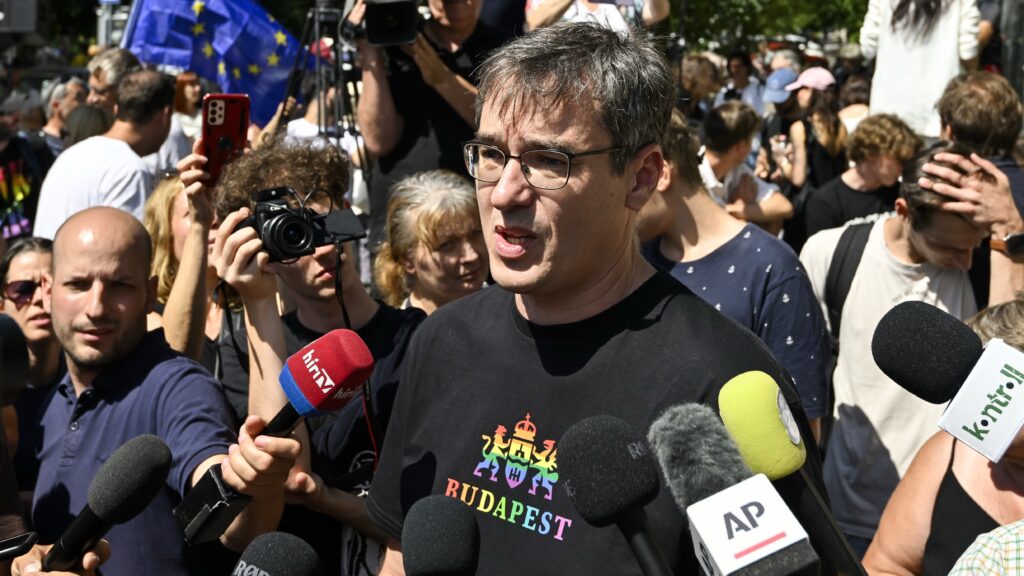The European People’s Party is undoubtedly a significant force in European politics. The EPP gives the European Parliament’s President, in addition to the 12 heads of state or government in the European Council and 14 European Commissioners (including the President of the European Commission, Ursula von der Leyen). Despite its relative strength in fact over the past decade, the EPP significantly declined—after the 2014 European Elections, the EPP controlled 265 (of 751) EP seats (which was 35 per cent), while today it gives 188 (of 720) MEPs or 26 per cent of all members. The loss of seats might be in part attributed to the EPP’s change of heart in crucial policy matters—the once centre-right political force gradually shifted to the left on issues such as the environment and migration. The extent to which the EPP is now in bed with the left is demonstrated by the fact that in 2024 the EPP’s EC candidate, Ursula von der Leyen’s re-election could only be secured with help from the Greens, S&D and Renew. ‘The four group majority is holding firm and is vital for defending our democracy against the far-right’—welcomed Terry Reintke, from the Greens/EFA Group, the re-election of the supposedly centre-right EC President.
The EPP held its Congress last week in Valencia, Spain. The choice of location soon became a burden to the organizers, however, as locals’ EPP-inflicted wounds are fresh. About half a year ago, the region was hit by a deadly flood that took the lives of 228 people. Victims of the flood blame the Spanish authorities both for failing to warn residents ahead of the natural disaster and for the long delays in the arrival of much-needed aid. The memory of the devastating floods is especially inconvenient for the EPP, as shortly before the flood claimed its first victims, the region’s President, Carlos Mazón, from the Spanish People’s Party (PP, affiliate of the EPP), downplayed the weather warnings the meteorological service issued. Mazón’s slow reaction to the unfolding disaster later triggered a mass protest in the region demanding his resignation. Recently, a judicial probe did begin to investigate the inadequate crisis response, but the EPP’s local member, Mazón—who was invited to voluntarily testify—declined to cooperate with the inquiry.
‘The region’s President, Carlos Mazón…downplayed the weather warnings the meteorological service issued’
It is not only the local wing of the EPP that Valencians are dissatisfied with, but also Brussels. The EU did not consider it important to rush to Valencia’s aid—six months passed since the disaster, but only one Commissioner came to the region to pay respect to the victims. Last week, on the six-month anniversary of the tragedy, high-ranking EU officials gathered in the region not to pay respect to the ones who passed, but to participate in the EPP’s lavish congress. The EPP dignitaries seemed to have shown little interest in locals’ pain: while victims asked Ursula von der Leyen in an open letter to hear them out about the failings of Mazón’s leadership, the President declined to meet with them in Valencia—a meeting might take place only later in Brussels. Adding insult to injury, the conference complex that the EPP selected as its Congress venue just six months ago served as a makeshift morgue for the victims of the flood.
Valencia’s disillusionment with the EU’s ability to swiftly react to natural disasters and provide aid to flood victims is an experience Hungary shares with Spain. Just a month before the disaster in Valencia in October 2024, Hungary was also hit by a flood. The Hungarian leadership was sceptical from the beginning that the EU would come to the country’s aid on time—or as Viktor Orbán said: ‘If we wait for EU flood aid, we’ll be up to our necks in water.’ Due to the government’s efficient response and the tireless work of many Hungarians, the country did manage to make it through the floods without any Hungarians falling victim to them. In other countries in the region, the same extreme weather event claimed the lives of 21 people.
‘The conference complex that the EPP selected as its Congress venue just six months ago served as a makeshift morgue for the victims’
In addition to the disastrous handling of the flood in Valencia, the EPP Congress was also overshadowed by the unexpected mega-blackout in Spain that hit the country on Monday. The power outage largely paralysed both Spain and Portugal, whose energy infrastructure is highly interconnected. The blackout left people stuck in elevators, restaurants in need of closing down as freezers and fridges did not work for over eight hours, and public transport also failed to keep schedules. The outage resulted from the grid experiencing a significant power imbalance, which made it shut down in self-defence. It is yet unexplained, however, how and why more than half of Spain’s power suddenly vanished at around midday on Monday—initial assessments did not find any evidence of a cyberattack. Regardless of the difficulties the region experienced in the past months, the EPP carried on with its Congress, pretending it was business as usual.
During the EPP congress, Manfred Weber was re-elected for his second three-year term as President of the European People’s Party. Since 2014, Weber has also been serving as the Leader of the EPP in the European Parliament. That is, Weber has been a high-ranking EPP member for more than 10 years whilst the party slowly declined—he ran unopposed, with as few as 61 members daring to vote against him (and 502 supporting his candidacy). As covered by Hungarian Conservative, in his re-election speech, Manfred Weber extensively discussed Hungarian matters too, praising the EPP member Tisza Party and its leader. ‘And I tell you: in spring next year, the Tisza Party will end the politics of corruption in Hungary. Viktor Orbán will retire,’ Weber opined. Once Orbán’s Fidesz was the EPP’s Hungarian member until it left in 2021 due to growing disagreement between the increasingly left-leaning EPP and Fidesz, which remained committed to its conservative principles. Tisza, which gives 7 of EPP’s 188 representatives in the European Parliament, joined the EPP last year after it came second in the European Parliament elections. Hungarian Prime Minister Viktor Orbán reacted to Weber’s speech and re-election with a Facebook post saying: ‘Yesterday was a dark day in Europe.’
Related articles:







